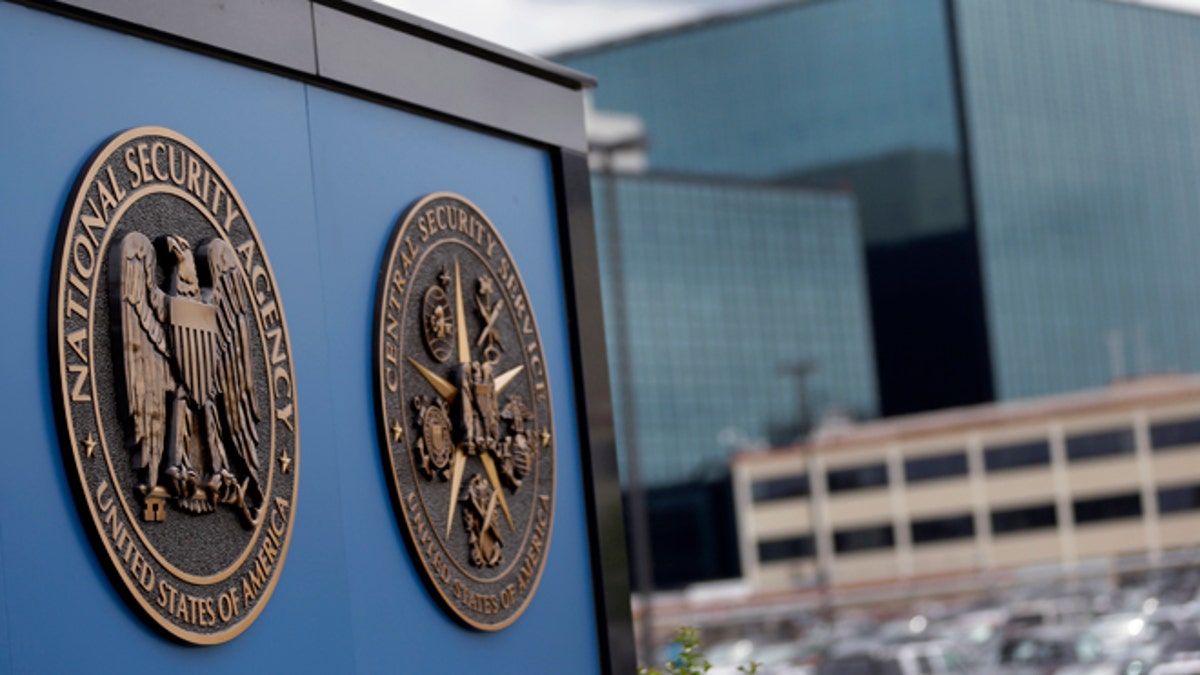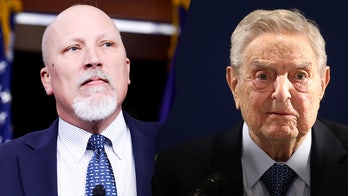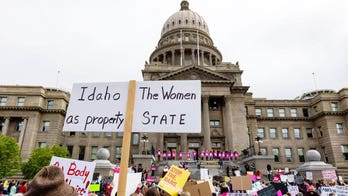
June 6, 2013: In this file photo National Security Agency plaques are seen at the compound at Fort Meade, Md. (AP)
WASHINGTON – The Obama administration does not plan to split the positions of National Security Agency director and chief of the U.S. Cyber Command into two, Fox News confirmed Friday.
The White House had been weighing breaking up the spy agency and the Cyber Command unit which carries out cyber warfare, but has chosen to keep it under one job. The push to split was seen by some as a way to rein in the controversy over widespread surveillance programs leaked by former contractor Edward Snowden.
The news comes on the heels of a presidential review panel tasked with examining policies and procedures at the National Security Agency. The panel drafted a series of proposals that would overhaul the agency's surveillance tactics, Fox News confirmed.
The panel's draft recommendations would limit how the spy agency collects and retains the electronic information of Americans and change the agency's leadership from military to civilian.
The panel proposed that the records of most phone calls made in the United States be held instead by the phone company or a third-party organization. Stricter standards for NSA access to the data were also recommended, according to the report.
White House spokeswoman Caitlin Hayden declined a request by The Wall Street Journal to comment on the report, which will be formally submitted to the White House on Sunday. The draft proposals aren't binding and could change before the final draft is submitted.
One of the panel's recommendations "aligns very closely" with legislation introduced by Senate Judiciary Committee Chairman Patrick Leahy, D-Vt., and Rep. Jim Sensenbrenner, R-Wisc., chairman of the House Crime and Terrorism Subcommittee, a source told the Journal.
The Leahy-Sensenbrenner proposal would end the bulk collection of Americans' phone records and provide more safeguards for warrantless surveillance. Other lawmakers, such as Sen. Dianne Feinstein, D-Calif., have offered less aggressive reforms.
At a Senate hearing Wednesday, NSA Director Gen. Keith Alexander defended the spy programs exposed by leaker Snowden in June that collect billions of phone and Internet records from around the world.
"How do we connect the dots?" Alexander said, referring to often-hidden links between a foreign terror threat and a potential attack on the U.S. "There is no other way that we know of to connect the dots. ... Taking these programs off the table is absolutely not the thing to do."
During an Aug. 9 speech, Obama said the review panel's members would "consider how we can maintain the trust of the people, how we can make sure that there absolutely is no abuse in terms of how these surveillance technologies are used."
The panel is exempt from the U.S. Federal Advisory Committee Act, which requires such committees to conduct open meetings and notify the public about their activities.
Four of the five review panel members previously worked for Democratic administrations: Peter Swire, former Office of Management and Budget privacy director under President Bill Clinton; Michael Morell, Obama's former deputy CIA director; Richard Clarke, former counterterrorism coordinator under Clinton and later for President George W. Bush; and Cass Sunstein, Obama's former regulatory czar. A fifth panel member, Geoffrey Stone of the University of Chicago, was an informal adviser to Obama's 2008 presidential campaign.
The Associated Press contributed to this report.




